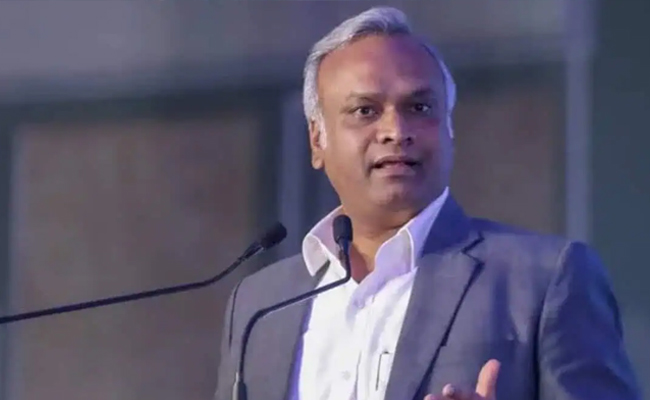Melbourne, Dec 29: Jasprit Bumrah (4/56) entered record books by completing his 200 wickets but Australia extended their lead to 333 runs, reaching 228 for 9 at stumps on the fourth day of the fourth Test, here on Sunday.
Resuming at 135 for six after tea, Australia lost their last recognised batter Marnus Labuschagne for 70 off 139 balls shortly after resumption but fought till the end of the third session to keep India at bay.
Australia captain Pat Cummins scored a vital 90-ball 41 for his side to stretch the lead and the last-wicket pair of Nathan Lyon and Scott Boland also put on another unbeaten 55 runs for the last wicket.
Brief scores:
Australia 474 & 228/9 in 82 overs (Marnus Labuschagne 70, Pat Cummins 41, Nathan Lyon 41 batting; Jasprit Bumrah 4/56, Mohammed Siraj 3/66) lead India by 333 runs.
Let the Truth be known. If you read VB and like VB, please be a VB Supporter and Help us deliver the Truth to one and all.
Bengaluru (PTI): Karnataka's BioEconomy has reached USD 39.2 billion in 2025, marking strong growth from previous years and reaffirming the state's leadership position nationally, according to an official report released on Monday.
The Karnataka Innovation and Technology Society (KITS), under the Department of Electronics, IT, Biotechnology and Science & Technology, unveiled the Karnataka BioEconomy Report 2025 in collaboration with the Association of Biotechnology Led Enterprises.
The report that was released by IT Minister Priyank Kharge stated that the state contributes around 21 per cent of India's BioEconomy and accounts for over 10 per cent of Karnataka's GSDP.
ALSO READ: Ethnographic study suggests political, economic support measures for Nadaf, Pinjara communities
According to the report, the BioEconomy has expanded from USD 31.0 billion in 2023, reflecting 26.5 per cent cumulative growth, and is now adding nearly USD 10 billion every quarter to the state's GDP.
BioPharma remains the anchor with over 40 per cent share (about USD 16.44 billion), driven by biologics, biosimilars, vaccines and diagnostics, it said.
"BioIndustrial biotechnology has emerged as the fastest-growing segment (about USD 11.46 billion, around 29 per cent share), led by fermentation-based industries, biofuels, enzymes and sustainable materials," the report stated.
BioServices accounts for about 25.8 per cent share, while BioAgri contributes to sustainable agriculture and input innovation, it added.
The report said BioEconomy growth is becoming increasingly multi-regional. While Bengaluru Urban accounts for about 54 per cent of the state's BioEconomy, Mysuru contributes around 8.7 per cent, while Belagavi and Dakshina Kannada together account for over 9 per cent. Northern districts remain the Agri-biotechnology belt.
As many as 218 new biotech startups were added in 2025, taking the cumulative total to 1,451 startups, with over 75 per cent focused on life sciences and health-tech. Bengaluru accounts for about 54 per cent of startups, it stated.
Between January 2024 and October 2025, the report stated that Karnataka attracted USD 1.14 billion across around 40 deals spanning BioPharma, MedTech, precision fermentation, digital health and AgriBio.
Minister Kharge said, "With our BioEconomy crossing USD 39 billion and contributing over 10 per cent to our GSDP, biotechnology is no longer confined to laboratories - it is now a central driver of economic growth, industrial innovation and societal impact."
He said that the state government's focus is on building a full-spectrum biomanufacturing economy by supporting deep-tech startups, strengthening innovation infrastructure, and ensuring that growth reaches beyond Bengaluru to every region of the state.





